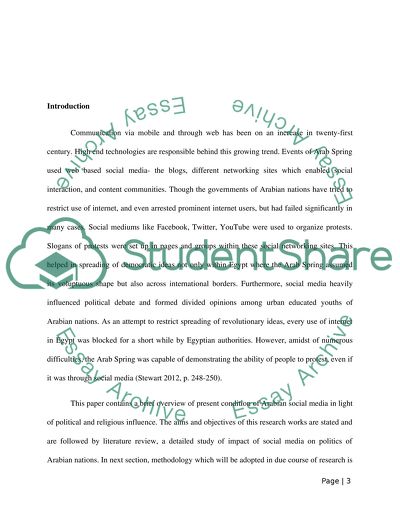Cite this document
(The Impact of Social Media on Political Life in the Arab Countries Research Paper Example | Topics and Well Written Essays - 3250 words, n.d.)
The Impact of Social Media on Political Life in the Arab Countries Research Paper Example | Topics and Well Written Essays - 3250 words. https://studentshare.org/media/1477161-the-impact-of-social-media-on-the-political-life
The Impact of Social Media on Political Life in the Arab Countries Research Paper Example | Topics and Well Written Essays - 3250 words. https://studentshare.org/media/1477161-the-impact-of-social-media-on-the-political-life
(The Impact of Social Media on Political Life in the Arab Countries Research Paper Example | Topics and Well Written Essays - 3250 Words)
The Impact of Social Media on Political Life in the Arab Countries Research Paper Example | Topics and Well Written Essays - 3250 Words. https://studentshare.org/media/1477161-the-impact-of-social-media-on-the-political-life.
The Impact of Social Media on Political Life in the Arab Countries Research Paper Example | Topics and Well Written Essays - 3250 Words. https://studentshare.org/media/1477161-the-impact-of-social-media-on-the-political-life.
“The Impact of Social Media on Political Life in the Arab Countries Research Paper Example | Topics and Well Written Essays - 3250 Words”. https://studentshare.org/media/1477161-the-impact-of-social-media-on-the-political-life.


